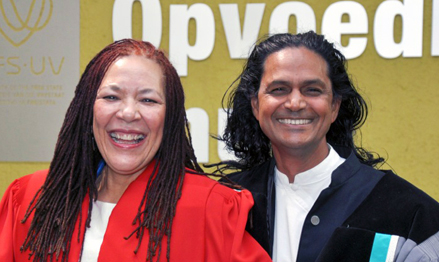Latest News Archive
Please select Category, Year, and then Month to display items
12 October 2020
|
Story Dr Cindé Greyling
|
Photo Supplied
 Exercise and nutrition can work wonders for your mental health – you don’t even have to ‘feel like’ or ‘enjoy’ moving around and eating well for it to work – it does its thing anyway.
Exercise and nutrition can work wonders for your mental health – you don’t even have to ‘feel like’ or ‘enjoy’ moving around and eating well for it to work – it does its thing anyway.
Nowadays, people talk about mental health like it is the common cold – which is good! But do you know what it really means? Being mentally healthy does not only refer to the absence of a mental illness but includes your emotional and social well-being. One would almost want to add physical well-being too, since a healthy body does indeed support a healthy mind. However, since so many people consider themselves ‘mental health experts’, some myths have been sold as truths.
Myth #1 – You are doomed.
Nope. Never. You are never doomed. There is always help. Mental-health therapies range from self-help, talk therapy, medication, to hospitalisation in some cases. Somewhere on this spectrum of treatments, there will be something that works for you. But you must be willing to get the help and do the work. For starters, exercise and nutrition can work wonders – you do not even have to ‘feel like’ or ‘enjoy’ moving around and eating well for it to work – it does its thing anyway.
Myth #2 – It won’t affect you.
It may. Research suggests that one in five people may suffer from a mental illness at some point in their lives. Being well now does not mean that it will stay that way. Biological and environmental factors both impact your mental health. Hopefully not, but at some point, you may experience an event that affects your mental health.
To remain integrated in a community is always beneficial
for anyone suffering from a mental or physical condition.
Myth #3 – Someone struggling with mental health must be left alone.
Hardly! To remain integrated in a community is always beneficial for anyone suffering from a mental or physical condition. You do not need to fix them, but to remain a friend. Continue to invite them, even if they decline. Do not judge, and do not try to understand. Just stay around.
Go and be kind to yourself, and to those around you.
Rhodes professor calls for accountability in teacher education
2013-11-14
|
 |
Prof Jean Baxen of Rhodes University and Prof Dennis Francis, Dean of the Faculty of Education of the UFS.
Photo: Stephen Collett
15 November 2013 |
Lecture (pdf)
“Our education system needs quality teacher education.”
This was the message from Prof Jean Baxen, Deputy Dean of Research at Rhodes University in Grahamstown. She delivered the Education Public Lecture on ‘The lives of children, citizenship and teacher education: challenges and opportunities’ at the University of the Free State’s Bloemfontein Campus.
Growing up in White River, the rural areas of Eastern Transvaal (as it was previously known), Prof Baxen took the audience on a journey of the imagination. She shared stories of how she and fellow learners walked miles to get to school and how her son found himself in a situation of being unsure about his own racial identity, questioning what it meant to be ‘coloured’. She also related stories of how teachers are not sufficiently prepared to mediate information on HIV/Aids.
These stories revealed how little teachers cared, and also how difficult and challenging it is for learners to cope in such teaching and learning environments – thus calling for quality teacher education.
She stressed the fact that quality teacher education is needed in South Africa to assist in curbing the challenges children and fellow citizens come across in our broader society. “It is important that, as teacher educators, we should groom teachers to find and understand their identity, sexuality, and also the world they live in. There is an urgent need for us to hold ourselves and others accountable and to not distance ourselves and make it someone else’s responsibility – it is our joint responsibility as citizens,” she said.
We need a pedagogy that would navigate and start formulating a language that we could use to face these challenges, she proposed.